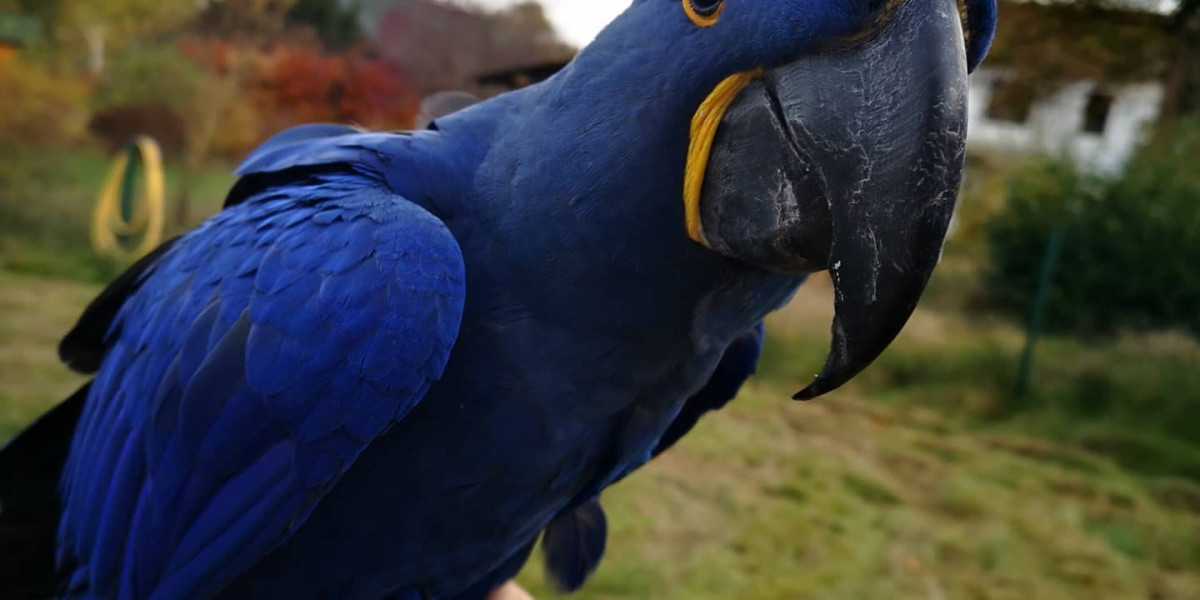Purchasing a macaw can be expensive. However, if you adopt from a rescue or shelter the cost of adoption can be significantly less.
You should also think about the ongoing costs for food toys, veterinary care, cages or aviaries. In addition, macaws are flock species and require constant attention.
You'll also need to find a veterinarian that is skilled in exotic animals and is within a reasonable range. An emergency situation with a veterinarian can be costly.
Costs
Macaws require substantial financial commitments. They could be around for 30 or more years and the ongoing costs include food, toys and vet visits. Knowing the total cost of a macaw will allow prospective owners to make a more informed decision. It is also crucial to determine whether you have the expertise and experience required to take care of a macaw.
Prices for macaws can vary based on the breeder and the location. Younger birds tend to be more expensive than older ones. Breeders who are reputable focus on macaw health and quality and usually provide the best support possible to their birds. They also offer advice on the behavior of their birds as well as socialization and other aspects. In general, macaws breed in the US are less expensive than those bred overseas.
The initial costs of setting up macaws can be significant. They require large cages and these can cost up to $2,000. Toys, feeders, liner and perches are also costly. These toys should be made from durable materials that are safe for birds. You can save money by creating your own toys using recycled or reused objects in your home. For instance, you can make rope toys using old T-shirts or fabric scraps. You can also design enrichment activities using simple wooden pieces. Macaws are chewers, so you'll need plenty toys that are sturdy and resistant to chewing.
The travel agent is a second one-time expense that you'll have to pay for if you plan to take your bird on holidays. Prices vary so it is recommended to check online marketplaces and look for bargains and discounts. There are also second-hand alternatives. Some people find that it's cheaper to purchase an old model rather than purchase one new.
Macaws are able to live for a long period of duration, so you'll need to consider what will do in the event that you are unable to not take care of them. Responsible pet owners set aside money or purchase an insurance policy that names their macaw as the beneficiary to cover the cost. Many animal shelters and rescues have macaws that are available to be adopted. They were previously owned, but aren't taken care of by their previous owners due to divorce, illness or any other reason.
Socialization
Macaws are very social birds and are used to living in large groups in the wild. They also enjoy socializing and play with other birds. If they are not socialized properly, a macaw can become fearful and may exhibit negative behaviors, such as feather-picking or aggression. Socialization can begin early and then the bird is gradually introduced to other animals and humans. You can do this by making use of toys, food, treats and a play area. A routine of daily stepping out of the cage to play and play with your macaw could aid in building confidence.
If you plan to get macaws, it is important to take into consideration the time commitment needed to take care of it. To be content these large birds require daily attention, interaction, and mental stimulation. They must be exposed to a wide range of experiences, such as visiting the vets of avian species, other pets family members, visitors and even car rides to overcome their natural fearfulness and discover that these activities are enjoyable and safe.
A healthy, well-bred macaw may cost thousands of dollars. This is an investment in your relationship with the bird, so be sure to look into adoption and breeders to find one with a a reputation for breeding quality birds. Read reviews and testimonials, and, if possible, visit the breeder or adoption center in person.
If you purchase a macaw from a reputable breeder will ensure that the animal is healthy and has been well-socialized. It also comes with an assurance that the bird has been vaccinated and is free of genetic diseases. A reputable breeder will provide you with information on the bird's health, personality, and background.
Macaws are able to be taught many tricks. This will help keep them engaged and mentally healthy, while also decreasing boredom and destructive behavior. They can be trained to obey basic commands, and it is also possible to teach them to mimic words and phrases.
Training
Macaws require a lot of stimulation. They can form a unique relationship with their owners and have a long lifespan. To maximize their potential, it's important to start training them at a young age. A well-trained macaw is more likely to respond to commands and learn new behaviors in a short time. The best way to train a macaw is to use positive reinforcement. This means rewarding your bird with treats and praise when it exhibits the behavior that you desire. It is also important to provide plenty of toys and other enrichment items for your macaw. It could be as simple as the wood piece that the bird chews on a regular basis or as intricate as an indoor play area that is designed to challenge its natural instincts.
Macaws require a lot of food and other supplies, which means the cost of owning one is more than other pets. This may include the initial purchase cost of the macaw, as well as the cost of a large cage, and ongoing expenses for food, toys, and veterinary treatment. It is also important to consider the long-term costs associated with having a Macaw.
Some breeders may charge more for their macaws than others, but this is usually because they have a reputation for selling high-quality birds. Breeders that are known for their quality tend to adhere to strict protocols to ensure the health and quality of their birds. Other factors that could influence the price of a macaw are its size and age, its geographical location and the legal restrictions that apply to its trade.
If you are unable to pay for the expenses of owning a macaw it is recommended to wait until you have more money or locate an animal that is in need of an appropriate home. If you can't afford the expenses associated with owning a Macaw, you should wait until you can or adopt an animal from a rescue group.
You can also read about how to care for yourself.
Macaws are highly intelligent and require lots of mental stimulation. If they're not entertained and bored, they could use destructive or loud behavior. They might also begin to pick at their feathers, which is a sign of boredom and stress. This can be prevented by providing your bird with many toys and games to keep it entertained.
In addition to food, you'll have to buy toys and cleaning supplies for your macaw. You can cut back on these expenses by purchasing bulk items whenever you can. You can save money by purchasing large quantities of cleaning supplies and liners. You can also try to avoid items that may be toxic to birds, for instance nonstick bakeware household cleaners with strong odors and air fresheners that contain fragrances.
You'll need to pay for vet visits and insurance for avian species in addition to your regular expenses. A good vet can diagnose and treat any illness your macaw may have, as well provide advice on how to care for them. Avian-specific insurance is an important investment because it can cover expensive vet bills for conditions such as avian influenza and psittacosis.
If you are planning to purchase a macaw, keep in mind that this is a commitment for a lifetime. You need to be prepared to care for them for the next 15 years. Consider purchasing pet insurance and saving money for unexpected medical expenses. Having a back-up plan in the event of a mishap can help ease your anxiety about having this exotic pet. If you're unsure about taking on this responsibility, there are a lot of rescues and sanctuaries that care for macaws in the country that can match them with homes that are suitable for them. These institutions are dedicated to the avian species, and their staff is on hand to help people understand the challenges of caring these birds. Additionally, they can assist you in determining whether this type of pet is a good fit to your lifestyle before you make any decisions.








